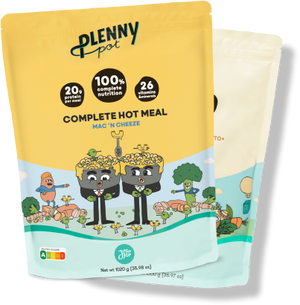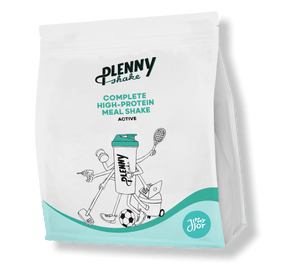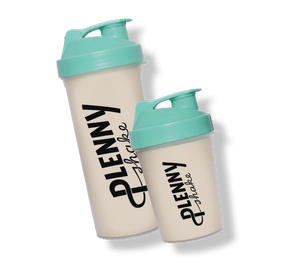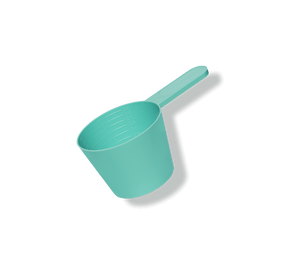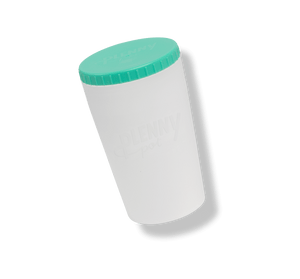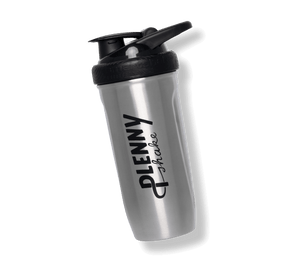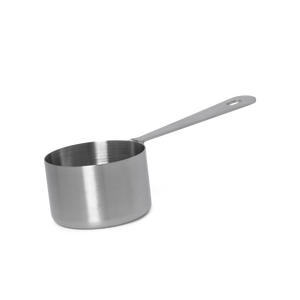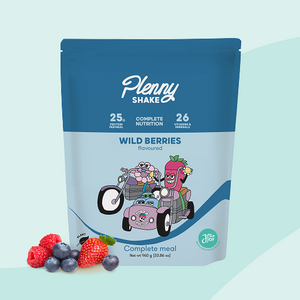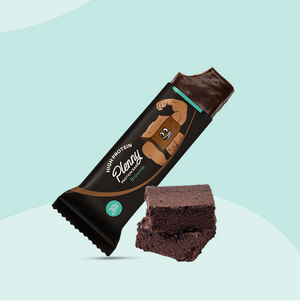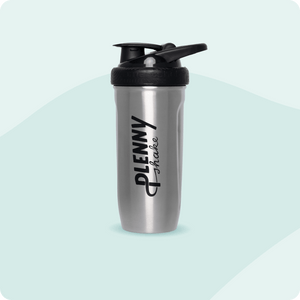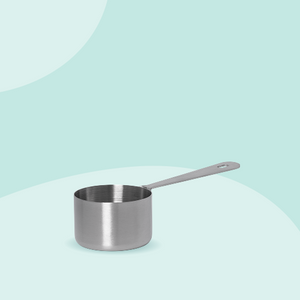Updated on May 2nd, 2024

So you finally got comfortable with your friends chugging down protein shakes before and after their workout, and now their new thing is meal shakes?!
What the hell is a meal shake anyway? And how is it different from a protein shake?
Excellent questions! Let’s take a look.
What is a Protein Shake?

Protein shakes are drinks made by mixing a few spoonfuls of protein powder with either water or milk.
Generally, protein powder is made out of protein concentrates or isolates from dairy (whey, casein) or plant sources (soy, pea, rice).
Whey and soy are considered complete protein sources because they contain all 9 essential amino acids in enough amounts. Your body needs those amino acids to break down food, repair body tissue, and perform many other bodily functions.
Protein shakes are a quick, easy, and pretty affordable way to increase your protein intake if you, for example, want to support your muscle growth.
The typical amount of protein in a prepared protein shake or ready-to-mix protein powder is between 15 and 30 g of protein per serving (depending on the specific product composition and the serving size). Therefore, in some cases the amount of protein in one portion of protein shake is already close to half of the total protein the average person is advised to consume per day (i.e., 0,83 grams of protein per kilogram of body weight) [1]
What is a Meal Replacement Shake?

Meal replacement shake and meal shakes tend to get mixed up, but watch out! Because the two are very different…
A meal replacement shake is a liquid meal designed to replace breakfast, lunch, or even dinner - generally with fewer calories than a ‘normal’ meal. That’s why meal replacement shakes are mainly used for controlling weight and positively impacting health outcomes [2].
They’re similar to a protein shake, in that, generally, they’re also a powdered mix of nutrients which you mix with water to consume as a shake.
Meal replacement shakes also tend to be high in protein. Protein helps you feel full for longer without adding too many calories. It can be an easy way to support weight loss without losing muscle mass.
What is a Meal Shake?

A meal shake is a drinkable meal that provides all the nutrients of a nutritionally complete meal.
There are two essential ways in which a meal shake is different from a protein shake or meal replacement shake:
- Purpose
- Nutrition
That’s because meal shakes are designed to be nutritionally complete meals.
Nutritionally complete meals contain all the recommended nutrients your body needs in the ideal amounts for optimal health. These ideal amounts are based on the average adult person and have been established by leading health organisations like the World Health Organization (WHO) and the European Food Safety Authority (EFSA).
Sounds pretty darn amazing, right?!
But stay sharp: some meal replacement shakes may look like meal shakes and vice versa! So be sure you take a look at the label of a shake before you purchase the wrong type of meal.
The nutritional information of a meal shake should look a bit like this [3]:
- 45-60 g Carbohydrates
- 14-25 g Fat
- 20-30 g Protein
- 7-10 g Fibre
Carbs and fat are essential, but a meal replacement shake typically will have a relatively high amount of protein and fibre and low amounts of carbs or fats. More protein and fibre help you to feel fuller longer and reduce the total number of calories in the meal [4].
So What is the Difference?
The most significant difference between protein shakes, meal replacement shakes, and meal shakes is that meal shakes are designed to be nutritionally complete meals.
Meal replacement shakes and protein shakes, on the other hand, are far from nutritionally complete meals and are used simply to increase your protein intake and/or to lose weight.
Protein Shakes: Pros and Cons
Pros:
- they are convenient:
Consuming a pre-made or ready-to-mix protein shake is an easy way to get a quick protein boost. - provides great benefit for those 50-years and older:
As we get older, our muscle mass diminishes. So consuming adequate amounts of protein daily becomes more and more critical. When you hit about 50, protein shakes can help you keep some lean muscle [5].
Cons:
- they are not nutritionally complete:
Unlike meal shakes, protein shakes are not nutritionally complete because they basically only add extra protein to your daily diet. So don’t use protein shakes to replace a meal - it’s just a supplement.
Protein shakes are used to build or maintain muscle mass, so they’re typically used by professional athletes, bodybuilders, and self-proclaimed gym rats.
But there are other reasons why you might want to use protein shakes:
- Needing to maintain your muscle mass as you age
- Having difficulties meeting your daily protein needs through diet alone [6]
Meal Replacement Shakes: Pros and Cons
Pros:
- easy to prepare:
Preparing a shake requires very little time or effort. Buying ready-to-drink meal replacement shakes is even easier. - it can help you lose weight:
Because of the relatively high amounts of protein and fibre, a meal replacement shake will keep you feeling full for quite some time, even though it lacks nutritional value. If you’re trying to keep your caloric intake down, this might be a good option for you.
Cons:
- may be too low in calories:
If your shake has too few calories per serving and you're consuming them regularly it may have a counteractive effect on weight loss [7]. This is because continuous limitation of calories under your daily energy needs causes stress on the body and triggers natural responses that, such as excessive steroid hormone release that stimulates weight gain while also increasing fatigue, muscle weakness, bouts of illness, etc. [7]. - it may not contain enough nutrition:
Carbs and fats are an essential part of a healthy diet, but because they bring a lot of calories to the table (pun intended), they are often barely found in meal replacement shakes. This way, the amount of calories stays low.
Meal Shakes: Pros and Cons
Pros:
- easy to prepare:
A ready-to-mix shake powder requires little preparation, while pre-made replacement shakes are a quick ready-to-go meal. If you have difficulties finding time to prepare and consume food, these shakes are a great way to keep you fed and on the top of your game. - nutritionally complete:
Nutritionally complete meal shakes provide you with all the necessary nutrients for your diet, and they also allow you to restrict your calorie intake [2]. - high in fibre:
The high fibre content in meal replacement shakes helps to keep you feel fuller for longer. More fibre also helps digestion and prevents uncomfortable post-meal bloating! [4].
Cons:
- you need to read labels carefully:
The difference between meal shakes and meal replacement shakes is not always clear, so you need to pay close attention to the ingredient label to ensure the product is of high quality. Make sure to check for: - A proper ratio of major nutrients (i.e., carbs, fat, and protein)
- At least 3 grams of fibre per serving
- Limited added sugars (<10 grams per serving)
A meal shake may be right for you if you want:
- a quick, easy, and nutritionally complete meal
- to limit your daily calories for weight loss
- to boost the calories you consume per day (to gain weight)
Yes, meal replacement shakes are generally used for losing weight, but nutritionally complete meal shakes can also help you lose weight. However, they can also help you gain weight!
Protein Shake, Meal Replacement Shake, Meal Shake: Which is Right for You?

To determine if a meal replacement shake or protein shake is right for you, you must assess your individual nutritional needs. Also, your main purpose of using these shakes.
A protein shake is what you’re looking for if you:
- want to support your muscle growth
- want a high protein snack
- need to maintain your muscle mass as you age
- have difficulties meeting your daily protein needs due to a low-protein diet or intestinal protein malabsorption disorder
A meal replacement shake is right for you if you:
- want to limit your calories to promote weight loss
A meal shake is right for you if you:
- are looking for quick and affordable nutritionally complete meals
- want to easily keep track of your calorie intake
- need to increase the amount calories you consume per day
FAQ
Can a protein shake replace a meal?
Unlike most meal shakes, protein shakes won’t have a balanced macronutrient ratio because they basically only add extra protein to your daily diet. So don’t use protein shakes to replace a meal - it’s more like a high-protein snack. Check out our Plenny Protein Shake.
Can you eat too much protein?
Like any other nutrient, regularly consuming excessive protein can cause strain on your body. For an average adult, it is recommended to consume 0.83g of protein per kg of weight unless you have specific dietary requirements. Generally, consuming over 2 g of protein per kg of body weight daily is considered too much, unless your body requires high amounts of protein (e.g. professional athletes) [8]. If you find yourself consistently surpassing the recommended protein intake, you might be overindulging. You could be pushing your protein levels too high if you're into paleo or keto diets, have a penchant for meat-heavy meals, or rely heavily on protein supplements like shakes or powders—especially if you're not very active.
But if you are curious to know more about how your protein intake should be, you can continue reading the article: ‘How much protein do I need?’
Symptoms of eating too much protein can include:
- Unexplained weight gain
- Stomach discomfort and nausea
- Dehydration
- Fatigue
- Irritability
*In severe cases, long-term excess protein intake can cause kidney problems [9]. Be sure to visit your primary care physician if you believe you are experiencing symptoms of protein overconsumption.
How many protein shakes can you have per day?
This differs per individual as the specific daily protein needs can vary based on factors such as age, sex, weight, and physical activity level. Based on the information stated in the article ‘How much protein do I need?’ and that a protein shake contains between 15 and 30 g of protein per serving (depending on the specific product composition and the serving size), you can calculate how many protein shakes a day you need to reach your protein requirements.
Should you prioritise protein shakes or high-protein foods?
Both protein shakes and high-protein foods can have a place in a healthy diet depending on your individual goals, preferences and dietary needs.
Protein shakes can be a convenient way to quickly consume a high amount of protein, particularly after a workout when your body needs protein to repair and rebuild muscle tissue. They are also often lower in calories and fat compared to high-protein foods, which can be beneficial if you are trying to maintain a calorie deficit for weight loss. However, it is important to choose a protein powder that is high-quality and contains all essential amino acids. Check out our Plenny Protein Shake.
On the other hand, high-protein foods can provide not only protein but also other important nutrients such as fibre, vitamins, and minerals. They can also be more filling and satisfying than protein shakes, which may help you feel fuller for longer.
High-protein foods you can prioritise in your diet can include:
- Lean red meats
- Poultry
- Seafood and shellfish
- Low-fat dairy products
- Eggs
- Legumes (i.e., soy, beans, lentils, etc.)
- High-protein grains and vegetables (i.e., quinoa, hempseed, chia seed, spirulina, etc.)
Can you have a meal (replacement) shake at every meal?
No, you should not be consuming meal replacement shakes at every meal because it can contribute to a monotonous diet. A monotonous diet is the act of eating the same foods every day at every meal and snack.
While there are benefits to a monotonous diet, such as easy meal preparation and calorie counting, there are also numerous drawbacks. Negative consequences of repetitively consuming the same foods like meal replacement shakes at every meal include boredom, difficulty losing weight, nutrient deficiencies, and can even increase risk of metabolic disease [9].
Instead, a diverse diet provides a variety of other unique and beneficial nutrients like antioxidants and phytonutrients that keeps you in good health by protecting and maintaining all of your vital body functions [8].
A diverse diet contains a variety of nutrient-dense foods, but can also include 1 or 2 high-quality meal (replacement) shakes per day.
Do all meal (replacement) shakes provide the same nutrition?
No, all brands of meal replacement shakes are different as they all have their own unique nutritional formulation.
It’s important to know what you’re looking for in a meal replacement shake before purchasing one. Standard formulations you can choose from are:
Low calorie (for weight loss)
High calorie (for weight gain)
Sugar-free
Fibre content
Diet type (i.e., plant-based, vegan, etc.)
Allergen or sensitivity-free (i.e., dairy-free, lactose-free, etc.)
Is it okay to have a meal (replacement) shake as a snack?
Maybe.
It is acceptable to have a meal replacement shake as a snack if you haven't consumed enough calories in your day or if your goal is to increase your caloric intake. A shake as a snack may also help if you’re using a meal replacement shake to gain weight.
However, it is also essential to alter or combine meal replacement shakes with other foods as a snack to increase the nutritional diversity of your diet.
Sources
- EFSA. Scientific Opinion on Dietary Reference Values for Protein. EFSA Journal [Internet]. 2012 Feb;10(2):2557. Available from: https://efsa.onlinelibrary.wiley.com/doi/epdf/10.2903/j.efsa.2012.2557
- Davis LM, Coleman C, Kiel J, Rampolla J, Hutchisen T, Ford L, et al. Efficacy of a Meal Replacement Diet Plan Compared to a food-based Diet Plan after a Period of Weight Loss and Weight maintenance: a Randomized Controlled Trial. Nutrition Journal [Internet]. 2010 Mar 11;9(1). Available from: https://www.ncbi.nlm.nih.gov/pmc/articles/PMC2851659/
- Carreiro AL, Dhillon J, Gordon S, Higgins KA, Jacobs AG, McArthur BM, et al. The Macronutrients, Appetite, and Energy Intake. Annual Review of Nutrition [Internet]. 2016 Jul 17;36(1):73–103. Available from: https://www.ncbi.nlm.nih.gov/pmc/articles/PMC4960974/
- Tremblay A, Bellisle F. Nutrients, satiety, and Control of Energy Intake. Applied Physiology, Nutrition, and Metabolism [Internet]. 2015 Oct;40(10):971–9. Available from: https://cdnsciencepub.com/doi/10.1139/apnm-2014-0549
- Chapman I, Oberoi A, Giezenaar C, Soenen S. Rational Use of Protein Supplements in the Elderly—Relevance of Gastrointestinal Mechanisms. Nutrients [Internet]. 2021 Apr 8;13(4):1227. Available from: https://www.ncbi.nlm.nih.gov/pmc/articles/PMC8068133/
- Pezeshki A, Zapata RC, Singh A, Yee NJ, Chelikani PK. Low Protein Diets Produce Divergent Effects on Energy Balance. Scientific Reports [Internet]. 2016 Apr;6(1). Available from: https://www.ncbi.nlm.nih.gov/pmc/articles/PMC4848496/
- Guo X, Xu Y, He H, Cai H, Zhang J, Li Y, et al. Effects of a Meal Replacement on Body Composition and Metabolic Parameters among Subjects with Overweight or Obesity. Journal of Obesity [Internet]. 2018 Dec 26;2018. Available from: https://www.ncbi.nlm.nih.gov/pmc/articles/PMC6327254/
- Delimaris I. Adverse Effects Associated with Protein Intake above the Recommended Dietary Allowance for Adults. ISRN Nutrition [Internet]. 2013 Jul 18;2013(126929):1–6. Available from: https://www.ncbi.nlm.nih.gov/pmc/articles/PMC4045293/
- Institute of Medicine, Committee on Military Nutrition Research. Not Eating Enough: Overcoming Underconsumption of Military Operational Rations [Internet]. Marriott BM, editor. National Academies Press. Washington, D.C.: National Academies Press; 1995. Available from: https://nap.nationalacademies.org/catalog/5002/not-eating-enough-overcoming-underconsumption-of-military-operational-rations

 Everything You Need In One Meal
Everything You Need In One Meal
 Stay Full For 3-5 Hours
Stay Full For 3-5 Hours





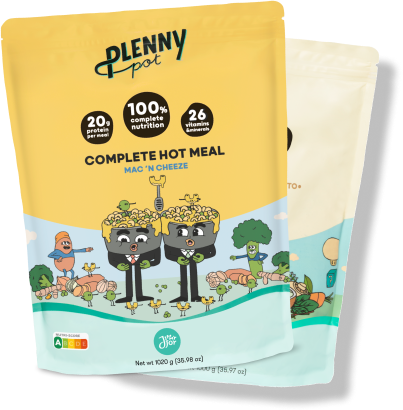

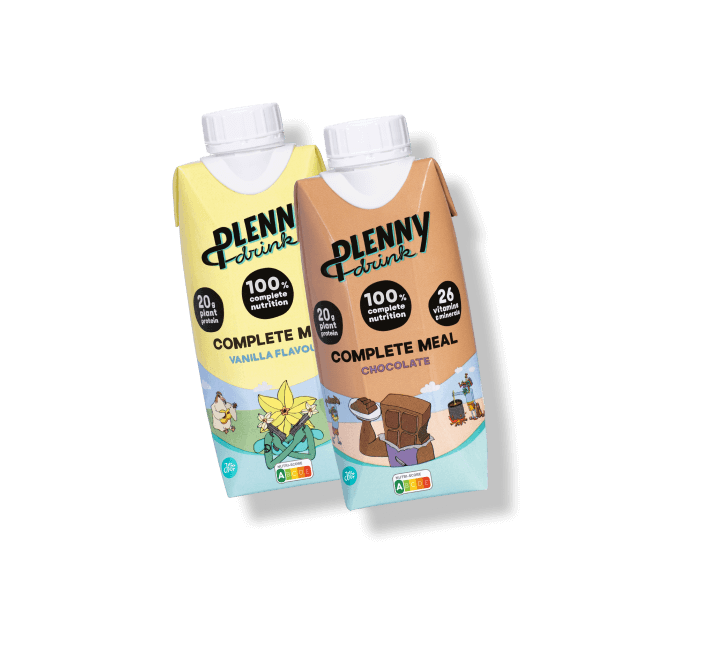
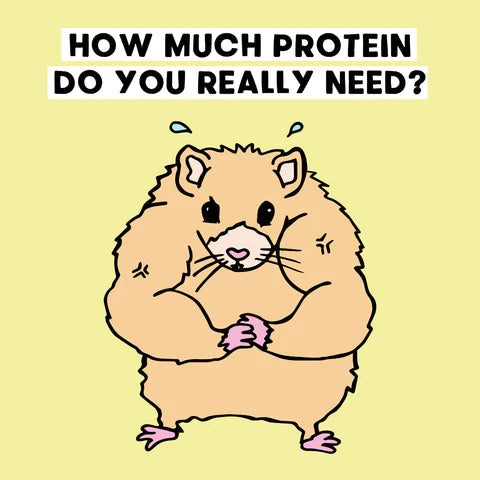








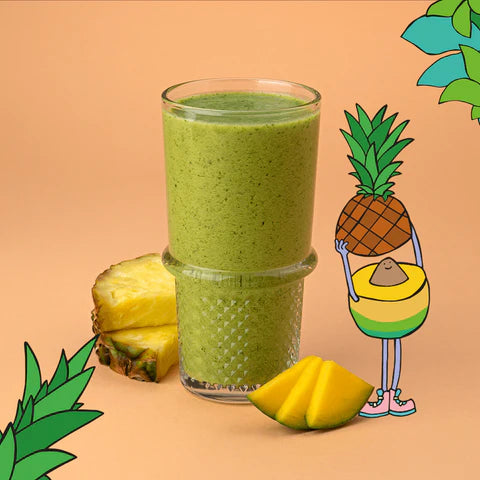


 Product added to cart
Product added to cart



